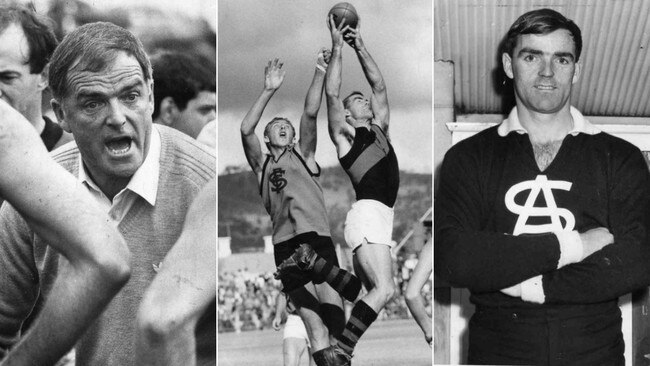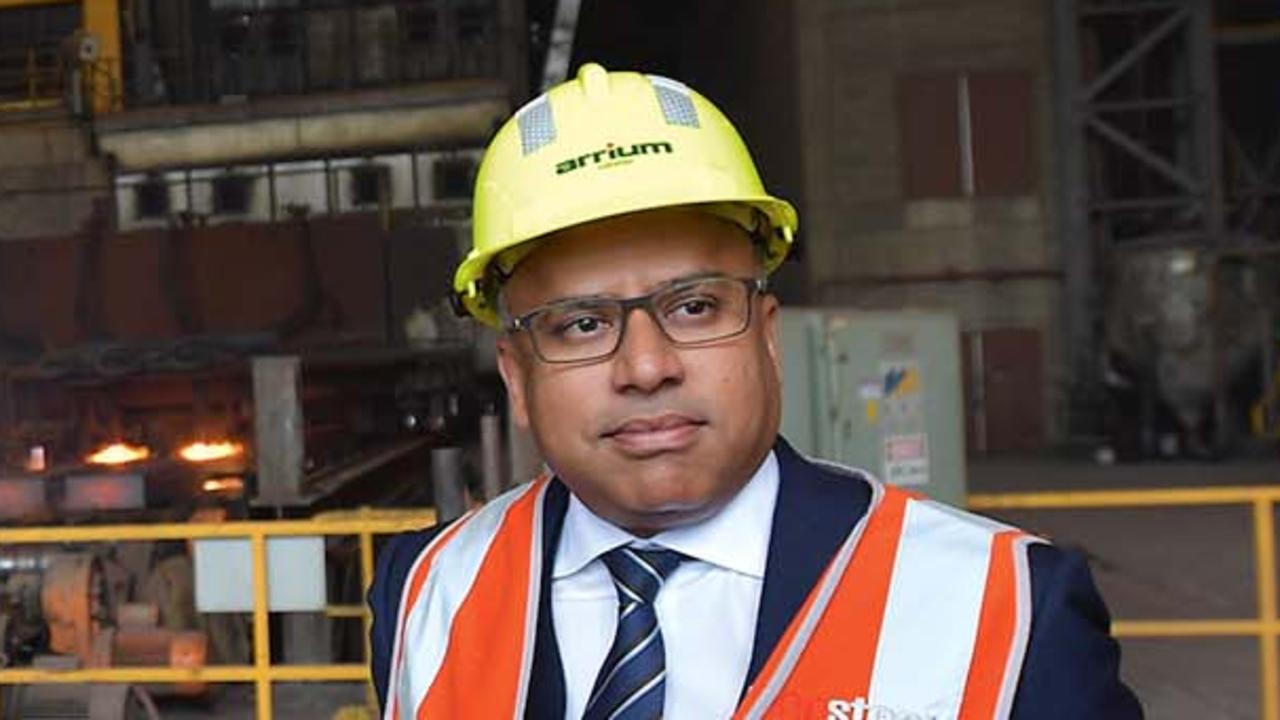SA footy legend Neil Kerley’s special bond and fierce rivalry with Ted Whitten
Neil Kerley often joked he was ‘Mr Football’ of South Australia. He and Ted Whitten were fierce rivals but also great friends, with one moment in 1995 standing out.
SA News
Don't miss out on the headlines from SA News. Followed categories will be added to My News.
Knuckles, Kerls, King.
Neil Kerley was known by a handful of nicknames but in the company of his Victorian sparring partners, such as Ted ‘EJ’ Whitten, he had another, self-given one.
“Obviously Dad was Mr Football but he (Kerley) would rate himself and tell everyone in his company ‘I’m Mr Football in South Australia’, just mucking around,” Ted Whitten Jr told News Corp.
“It was part of the fun and frivolity he had with EJ.
“They were fierce competitors – both loved their states – and when they were on the ground there were no friendships out there.
“They were great mates, great rivals.”
Kerley, who died in a car crash on Wednesday, aged 88, became on-field adversaries with EJ in matches between South Australia and Victoria during the 1960s.
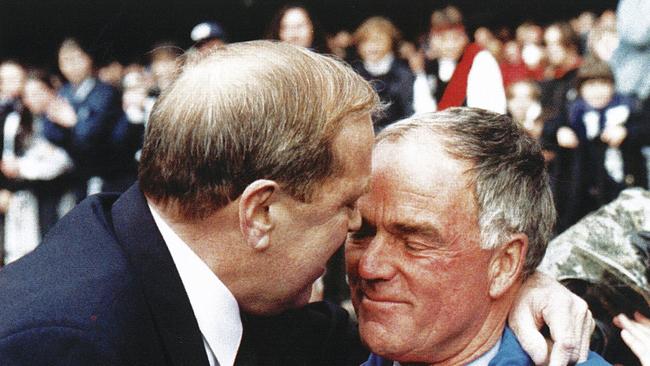
Both played the game hard with a never-give-up attitude.
In an Open Mike interview in 2014, Kerley cited an on-field clash at the 1966 national carnival in Hobart as their most memorable.
Whitten whacked Kerley across the nose as the then-South Adelaide star waited for a lofted handball.
Kerley said he could smell Whitten coming and instructed him to “get it over quick, Ted”.
After Kerley took his kick and chased the Footscray champion, he caught him – standing right by the umpire.
Kerley assured EJ he would get him later.
“There was no love lost on the ground but they still enjoyed each other’s company off the ground,” Whitten Jr said.
Kerley starred on the national stage in Australian carnivals, representing SA 32 times.
“He was inspirational, a champion,” former West Adelaide and state teammate Ken Eustice said.
At the opening bounce of SA’s 1963 match against Victoria at the MCG, Kerley ran through Geelong star Alistair Lord, the previous year’s Brownlow Medallist.
Kerley had been offended by Richmond great Jack Dyer saying in the lead-up to the game that if he were coaching the Vics, he would simply give them a pep talk then go to the races.
The next day, Kerley, who was SA’s vice-captain, told his team: “Something’s going to happen at the opening bounce. Don’t get involved. Play footy.”
SA kicked the first three goals on its way to a famous win.
“I was about 20 yards back (from Kerley’s hit on Lord) but I could see it coming,” said Eustice, who won the Magarey Medal in 1962.
“Next thing, whack.
“As soon as they hit, there would’ve been 15 players around.”
Eustice said SA would not have beaten its arch-rival that day if not for Kerley.
“When he chopped across three or four in the first 15 minutes, they all realised they had a game to play and there was a guy out there who you didn’t want to get in front of,” he said.
Kerley never crossed to Victoria to play or coach.
Although there were opportunities to join various Melbourne clubs, he could not obtain a clearance.
“I told Whitten and (Victorian legend Ron) Barassi, one of you guys is going to have to move out because there’s not going to be room enough for the three of us,” Kerley said on Open Mike.
Kerley was later offered the South Melbourne coaching job but turned it down, wanting to stay home in SA.
He regretted it, saying he would have loved to have proven to Victorians there were people outside their state who could play and coach.
But Kerley made his mark on the national competition as the Crows’ inaugural team manager in 1991.
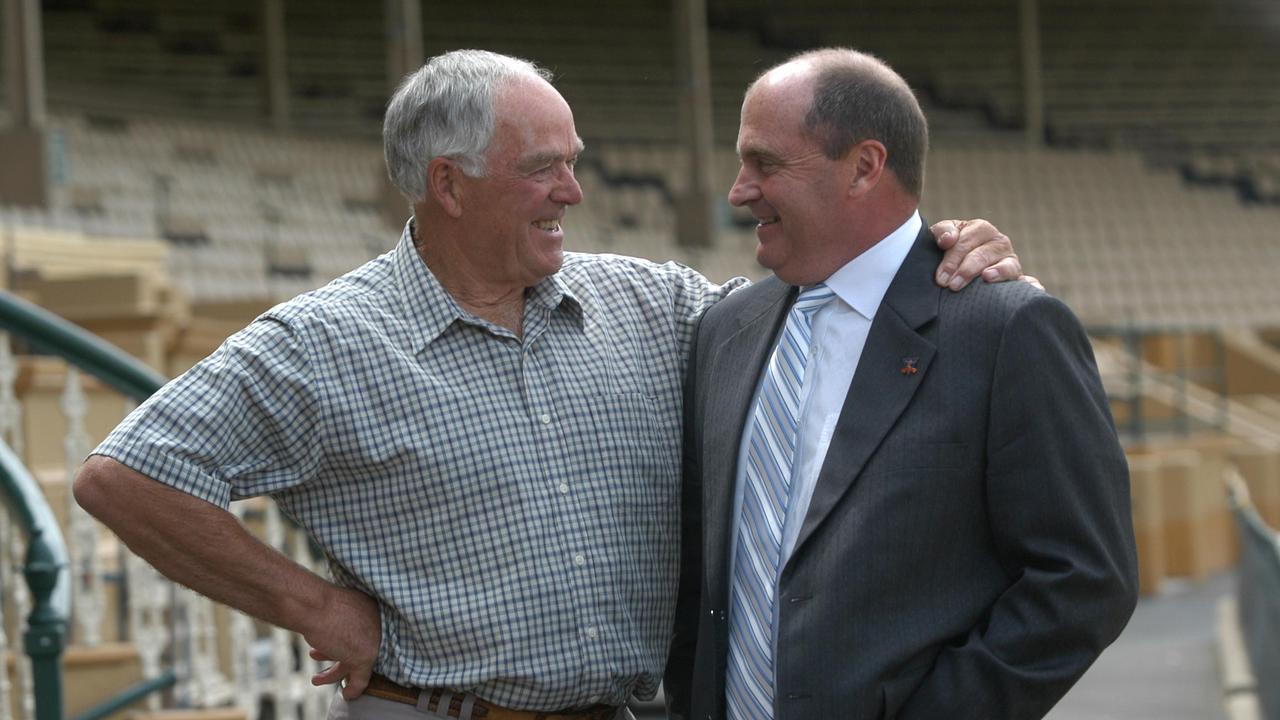
He was one of a handful of people tasked with building the club’s first squad of 52 players and convinced key names to stay in South Australia.
Kerley was also coach Graham Cornes’s right-hand man.
“He felt he could have been the coach,” inaugural Crows chief executive Bill Sanders said.
“He became an excellent foil for Graham, a sounding bound and confidante.”
Former Crows captain Mark Ricciuto was recruited by Kerley from Waikerie in 1991.
Kerley came up to the town with an Esky full of beer to convince him and his dad to join the club and West Adelaide.
Ricciuto signed the next day.
The 2003 Brownlow Medallist became one of the club’s greatest players and later bonded with Kerley at Walker Flat, where both of them had shacks.
“Quite often he’d come around for tea with (his wife) Barb and we’d be sitting around a table with eight or 10 or 12 of us,” Ricciuto said.
“He was 40 years older and he’d be holding court the whole night.
“He was a great storyteller, a hell of a lot of fun ... and you hung off every word he said.
“I just loved him like I love my Dad.”
Kerley also helped build the culture at the Crows, as players who were rivals from across the SANFL united.
Sanders recalled Kerley singing ABBA’s Dancing Queen at one Crows get-together at the Grange Hotel.
“He was big for the spirit and camaraderie,” he said.
The Crows were in a board meeting on Wednesday night when they learnt of Kerley’s passing.
Adelaide planned to honour him at Saturday’s home match against Melbourne.
Ricciuto said although Kerley was not at the Crows for a long time, he left a massive legacy.
On Thursday, Ricciuto passed on condolences on behalf of the club and all its players to Barb and the Kerley family.
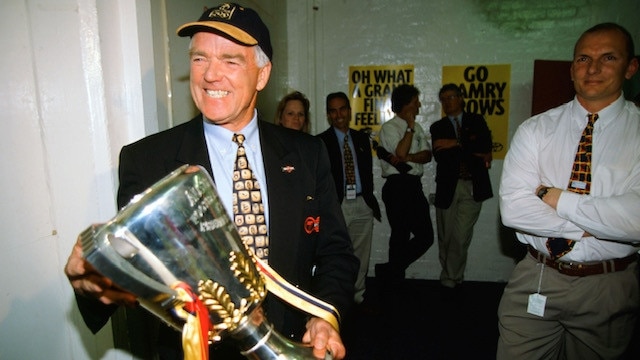
“It’s a huge hole to fill and we all thought Kerls would live forever,” he said.
Kerley’s fierce parochialism to South Australia and the Crows continued after he left West Lakes at the end of 1991.
After a third stint coaching West Adelaide, he became a boundary rider on Channel 7 and was an unofficial mascot for State of Origin matches, alongside EJ.
The duo’s similarities and role in growing the State of Origin concept during the 1980s through to the ‘90s helped their friendship blossom.
“They were very similar in terms of football spirit,” Whitten Jr said.
“They were characters in their own right, both legends in their respective states.
“They were passionate about state football and would do anything to protect their teams and players.
“Between the both of them they built up the State of Origin concept unbelievably and it was so fantastic to watch.
“The old Victoria versus South Australia games were the best ever.”
EJ, along with the likes of Lou Richards and Barassi, were regularly on the receiving end of Kerley’s anti-Victorian sentiment.
“I used to listen to Dad do a piece with FIVEaa every week in his lounge room and the stuff that’d come over the airwaves would be a bit of a bake to get Dad fired up,” Whitten Jr recalled.
“It was great radio to listen to.
“A lot of the build-up and frivolity was theatre but it was all aimed to bring a crowd and get the hype up.”
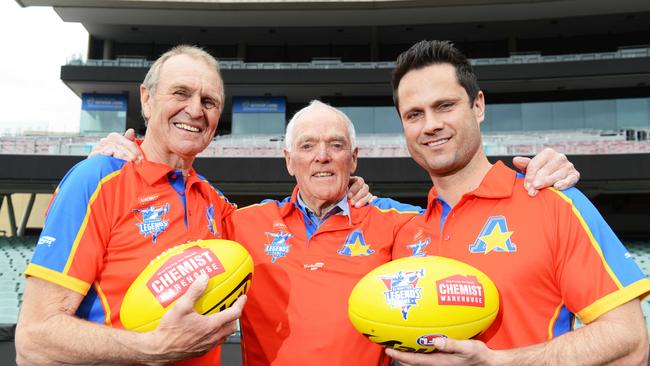
Never was a crowd more gripped than when the Whittens were driven in a car on a lap of the MCG boundary before the 1995 State of Origin game between SA and Victoria.
EJ was suffering from prostate cancer and had gone blind due to a stroke.
As they went around to a standing ovation with barely a dry eye in the ground, he kept asking his son: “Where’s Knuckles? Where’s Knuckles?”
“Kerls came up and they gave each other a big hug,” Whitten Jr said.
“Whatever he said stirred him up in a big way.”
Kerley revealed on Open Mike that he told EJ: “There’s no doubt about you, you can’t keep your bloody nose out of it, can you? You’ve got to be involved in everything”.
EJ responded by saying “we’re going to get you blokes today”.
“After the lap, Neil told Cornesy (coach Graham Cornes) that South Australia had no hope that day because everyone in the ground was teared up and the players were ready to go,” Whitten Jr said.
Victoria won by 63 points.
Two months later, in August 1995, Whitten Jr asked Kerley to be a pallbearer at his dad’s funeral.
Whitten Jr said Kerley was the first person to put his hand up to support the EJ Whitten Legends charity game concept, which began the following year to raise funds for prostate cancer resarch.
He was shocked to hear of “Knuckles” passing.
“He became a great friend of mine, I’ve attended many functions with him, went to his 80th birthday, I’d catch up with him if I’d go to the footy or a day at the races,” he said.
“He was a ripper bloke.
“If it wasn’t a tip on the races, it was a story about the old days of football and some of the past champions who played the game.
“Everything you talked to him about was interesting and that’s why he’s loved by so many people.
“I’ll remember him forever.”
SOUTH AUSSIE FOOTY LEGEND ‘KING’ KERLEY DIES IN CAR CRASH
One of South Australian football’s most influential and legendary figures, Neil Kerley, has died in a car crash.
Kerley, a former state captain and coach who was involved at five SANFL clubs, winning four premierships, crashed on Mallee Rd, Walker Flat, in the Murraylands just before 5.30pm on Wednesday.
His car, towing a trailer, smashed through a fence into a paddock about 4km from his home. He was 88.
PAY TRIBUTE: Share your memories in the comments box below
Born Donald Neil in Barmera, Riverland, but known by his middle name, “King” or “Knuckles”, Kerley made his mark on SA football for more than 40 years.
First as an inspiration and warrior on the field, then as a brilliant coach.
He arrived in the city for National Service in 1952.
Kerley had a stint with West Adelaide that year, then joined the Bloods permanently in 1956, quickly forging his reputation as one of the SANFL’s best and toughest players.
READ MORE: Vale Neil Kerley: ‘SA has lost an icon’
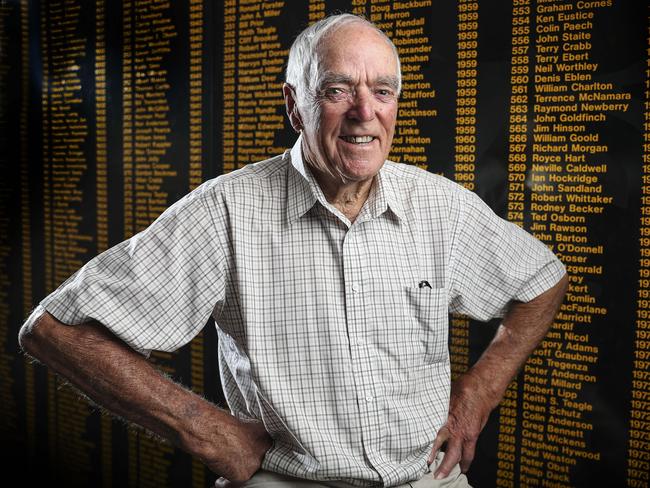
In 1961, Kerley steered West Adelaide to a memorable grand final win over Norwood as captain-coach in 36C heat.
It was one of five flag deciders during his first spell with the Bloods and his only victory.
After his shock axing from West, where he also won four best-and-fairests, Kerley joined South Adelaide as captain-coach and inspired the perennial cellar-dweller to a famous grand final success in his first season.
READ MORE: Ted Kerley’s touching tribute for brother ‘Knuckles’
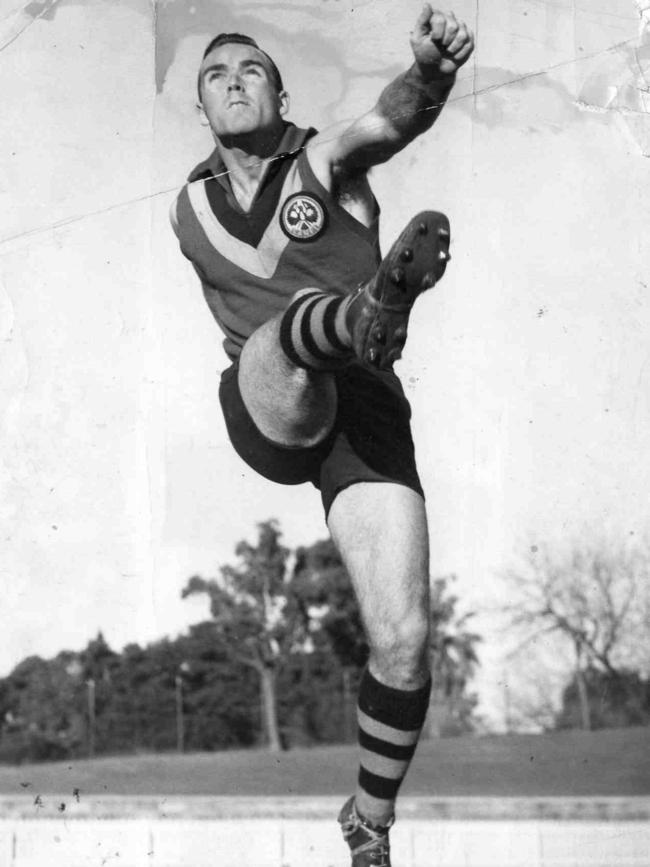
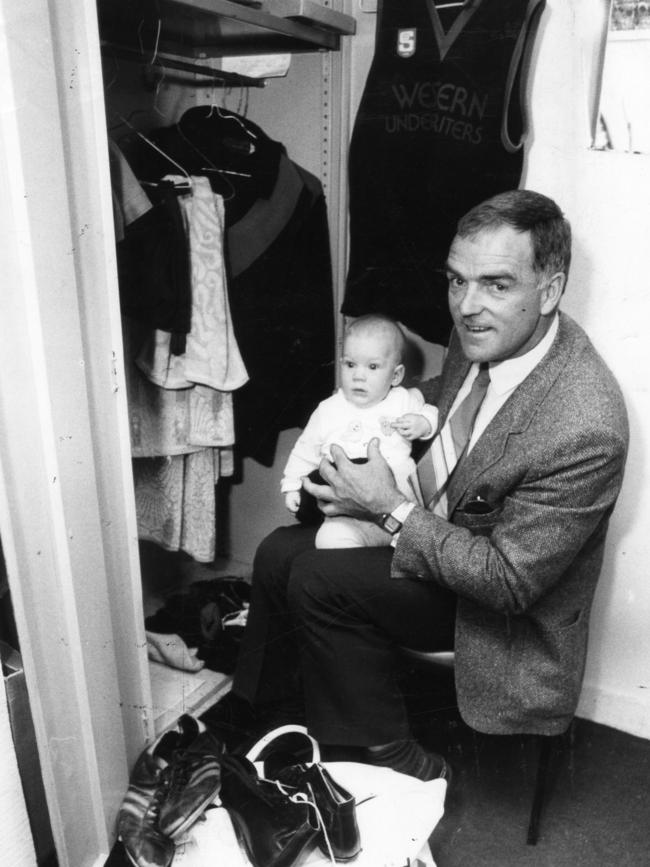
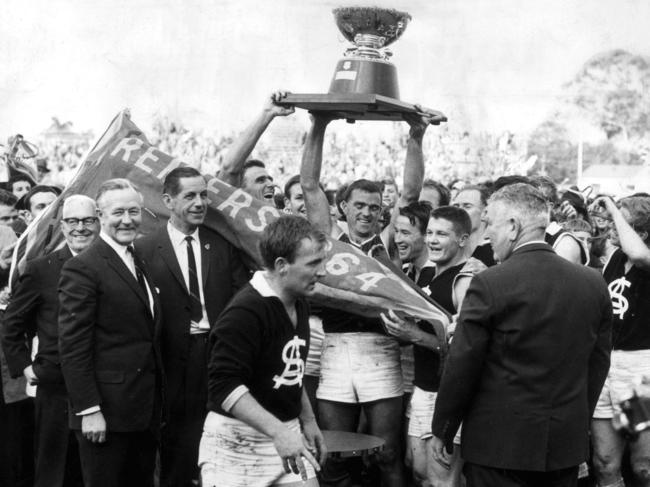

Later, he moved to Glenelg and lifted the Tigers from last in 1966, the campaign before his arrival, to the finals the next year.
Strong, versatile with an explosive leap and never-give-up attitude, Kerley also established himself as a star of state contests.
He lined up 32 times for South Australia, including as captain, and particularly relished matches against Victoria.
Kerley earnt the nickname “Knuckles” due to multiple finger injuries and it emphasised his hard-nosed playing style.
His on-field career ended after Glenelg’s defeat in the 1969 grand final, but his achievements, passion and influence continued from the sidelines.
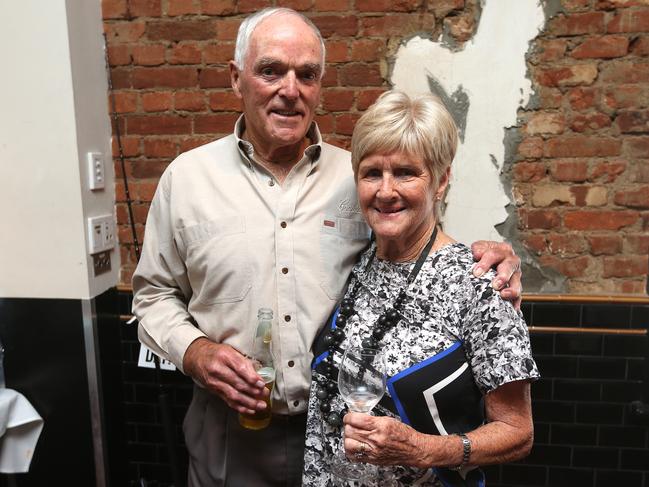

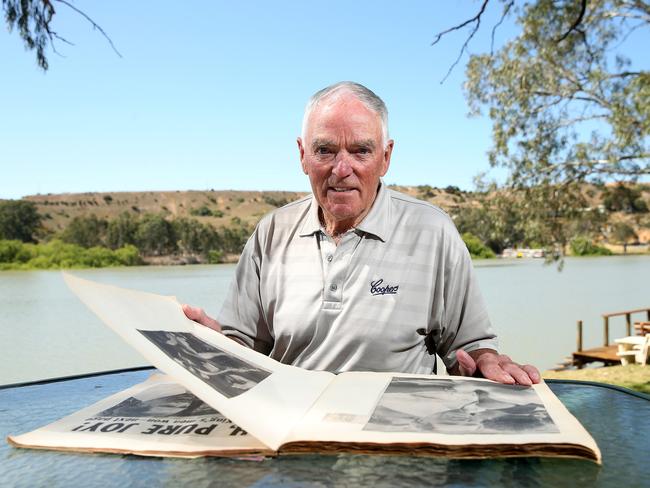
Kerley steered the Tigers to the 1973 flag, ending the club’s 39-year drought, then a decade on, after returning to West Adelaide, he led the Bloods to the 1983 premiership.
He went on to take the reins at West Torrens (1977-80), Central District (1988-90) and once more at the Bloods (1992-93).
Overall, Kerley played 265 games and kicked 123 goals from 1952-69.
His coaching record across five clubs was 365 wins, including four flags, from 628 games.
Kerley was inducted into the SA Football Hall of Fame in 2002 and the national equivalent in 1997.
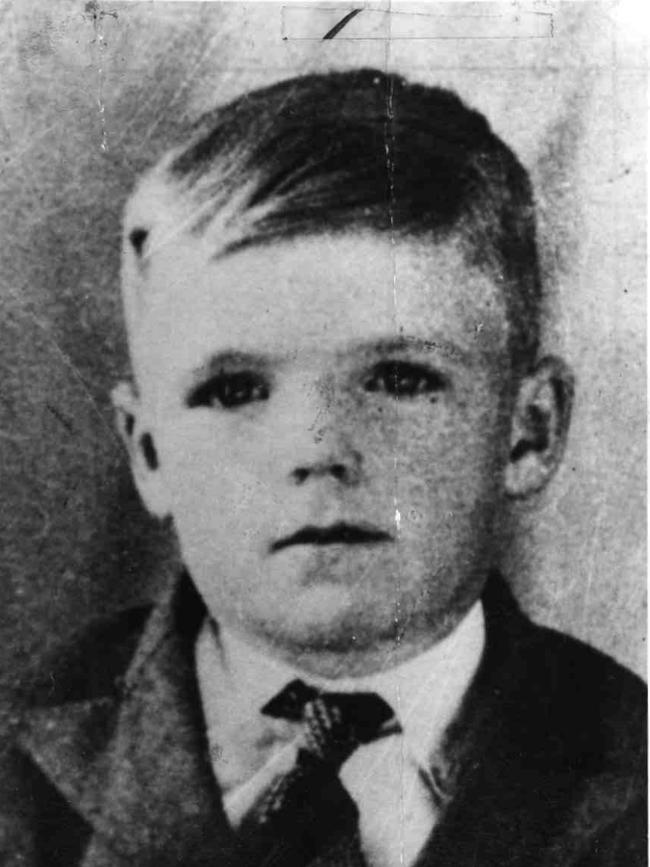
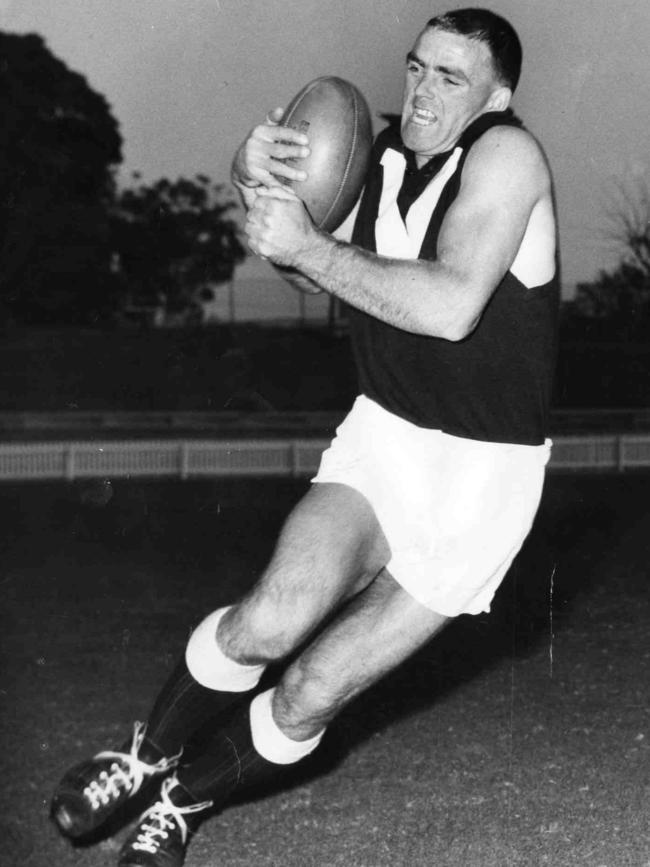
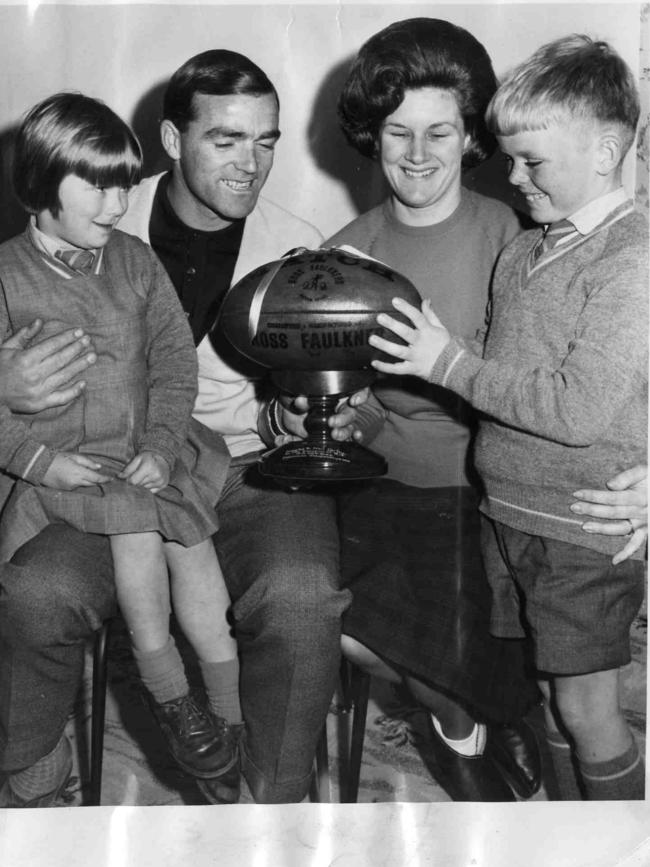

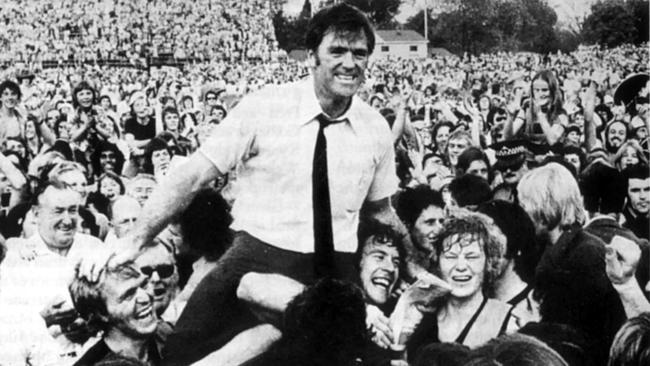
He was elevated into the South Australian Sport Hall of Fame in 2019 and received an Order of Australia Medal in 2007.
His lengthy football CV also includes one best-and-fairest at Glenelg, being named All-Australian vice-captain in 1961, coaching the state team during the 1960s, ‘70s and ‘80s and being Adelaide’s team manager during the Crows’ inaugural season in 1991.
Kerley, who moved back to the Riverland permanently in 2004, later became an All-Australian selector and media personality.
Upon his induction into the SA Sport Hall of Fame in 2019, Kerley said it was a hell of a surprise and a great thrill.
“For a kid from the bush, from the scrub, who didn’t start with much and began playing footy for a bit of fun, it’s something I feel very good about,” Kerley said.
More Coverage
Originally published as SA footy legend Neil Kerley’s special bond and fierce rivalry with Ted Whitten


